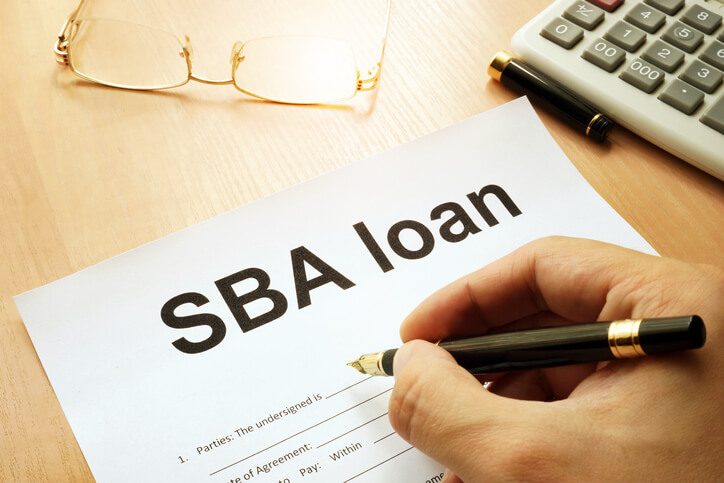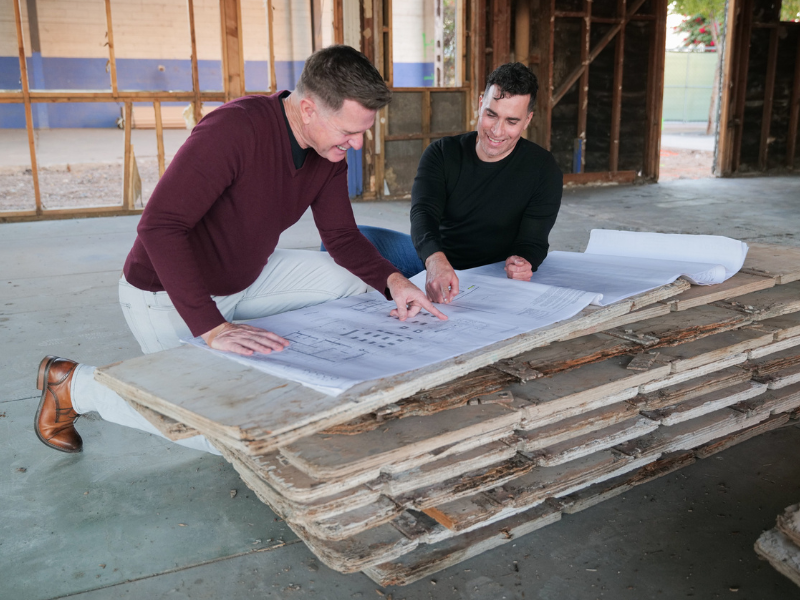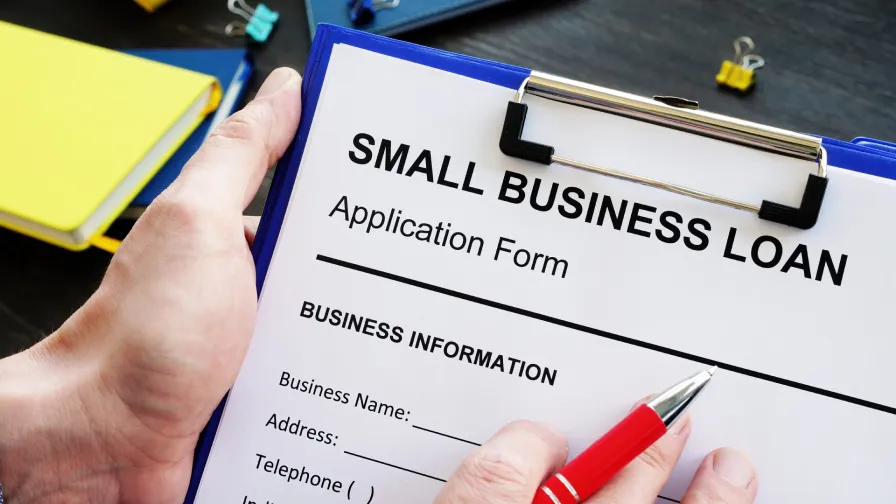What is an SBA Microloan:
As its name suggests, an SBA Microloan was created for businesses needing a smaller size loan. With the loan, a business owner can get up to $50,000 in financing. Whether you are an established small business or one that’s just starting out, the SBA Microloan is an affordable loan option and can be used by startup companies or those looking to grow or expand their operations.
You can use your SBA Microloan to help grow and improve your business in many ways including upgrades, renovations, buying new equipment, marketing and more.
It’s very important to note, the SBA is not the lender of the SBA Microloan. If you are looking for an SBA Microloan, you will want to seek out a mission driven lender like CDC Small Business Finance. You can also visit the SBA website to find lenders in your area by contacting your local SBA District Office.
One of the advantages of SBA Microloans is that they serve to reach small businesses that traditional lenders tend to overlook. So if you have had trouble in the past getting approved for a small business loan, an SBA microloan might offer the solution you need.
With an SBA Microloan, you may be required to work with a small business advisor in order for your loan application to be considered. The business guidance is complementary and is a valuable tool to helping businesses create a strong and realistic plan for success.
Pro Tip: Rates and terms vary based on the lender. Be proactive and ask the lender questions to ensure you fully understand the loan eligibility and requirements.
Read on to learn more about this loan and whether it’s the right fit for your needs.
SBA Microloan Interest Rate
Your interest rate will vary depending on the lender and their regulations. For the most part, interest rates are affordable compared to other nontraditional loans. The SBA Microloan interest rate is generally between 8 and 13%.
Terms
The terms of the SBA Microloan are determined by several factors. When you work with a lender the following will help determine the specifics of your loan:
- Lender requirements
- Needs of the small business borrower
- The planned use of funds
- Loan amount
Repayment: The maximum amount of time you can get to repay your SBA Microloan is six years. You can expect your interest rates and fees to increase the longer it takes you to pay back your loan.
When you work with a CDC Small Business Finance loan specialist, they will help you determine how much you can afford to repay each month. This helps avoid getting in over your head and helps you find a loan that is sustainable for your business.
How to get an SBA Microloan
Find a Lender
As mentioned above, you don’t receive a Microloan directly through the SBA, you work with a mission driven lender like CDC Small Business Finance.
To apply for a Microloan, you must work with an SBA approved mission-driven lender in your area. These lenders make all credit decisions and have their own terms. To find an authorized microloan lender near you, contact your local SBA District Office.
If you want to work with CDC Small Business Finance you can click here to apply online or reach out to a loan expert.
What do I need to Apply
The documents required for a Microloan will vary from lender to lender, however here is a list of the top documents that most will request:
- Loan application, personal financial statement, debt schedule
- Business and personal tax returns
- Interim financial statement (Profit/Loss and balance sheet since the last reporting period)
- Business plan and projections as applicable
Check out our checklist of the top documents you’ll need for a small business loan
Eligibility
Once you find a lender to work with, you will need to ask them about their eligibility requirements. Each lender has its own lending and credit guidelines. Generally, the lender will require some type of collateral as well as the personal guarantee of the business owner.
As far as what requirements you need to meet in order to be eligible for an SBA Microloan, it largely depends on what kind of business you operate and your current financial standing. Let’s explore
- Credit: SBA Microloan lenders are accustomed to working with borrowers who have a limited credit history. Some might be in the process of rebuilding their credit or have low credit scores. Certain aspects of your credit reputation, such as a recent bankruptcy or foreclosure, may make it harder to assess your qualifications.
And if your credit score is low, you need to show an advantage in other areas of your application. Does your company generate good income? Are there any valuable guarantees, such as collateral? Do you have anyone who can co-sign the loan?If you answered “yes” to any of these questions, you might have the edge needed to make up for a poor credit rating.Get what lenders are looking for with our 5 C’s of Credit - For profit: To qualify for an SBA Microloan, you must own a small business that is considered for-profit. There is one exception, a non-profit daycare center is eligible for an SBA Microloan.
- Financial standing: Microlenders need to know that you can pay off the loan on time. There are a couple of ways to prove this. One is based on your company’s existing cash flow. The other is on future financial projections if your company has not yet generated revenue.You must be able to present a viable business plan to be eligible for an SBA Microloan. Planning is particularly important for new businesses that have not yet generated revenue. You need to convince the lender why they should entrust your company to repay the loan in time with an effective, appealing business plan.
- Collateral: As for collateral, it differs by lender and some may not require any collateral. Collateral is fixed assets that assures the lender that if you default, they will get paid back. If it is needed, it is assets including:
- Equipment/machinery
- Company real estate
- Accounts receivable
- In some cases, you may have to put up your own personal assets to cover the collateral. Personal assets include things like your:
-
- Other personal real estate
- Vehicle
- House
- Any assets you buy with your loan becomes collateral. You will also need to sign what is known as a personal guarantee, stating that you will repay the loan within the agreed timeframe.
How to use an SBA Microloan
These loans are designed to help your small business in a variety of ways and can be used for:
- Working capital
- Inventory
- Supplies
- Furniture
- Fixtures
- Machinery
- Equipment
- Re-open and repair
- Start up
The SBA Microloan cannot be used to pay existing debt or for real estate. If you are considering purchasing a building for your business you will want to learn about the SBA 504 commercial real estate loan.
If you have financing needs that are greater than $50,000, reach out to one of our CDC Small Business Finance experts and they can assist you in finding the best small business loan to meet your goals.
Apply for an SBA Microloan through CDC Small Business Finance
As mentioned above, you don’t receive a Microloan directly through the SBA, you work with a mission driven lender like CDC Small Business Finance.
At CDC Small Business Finance, we can help you get the funding you need to grow your business or get your idea off the ground and running. For more than 40 years, we’ve helped entrepreneurs like yourself get approved for loans to support their dreams.
Apply online or Talk to a Loan Officer
With CDC Small Business Finance, you can apply online here or you can connect directly to a loan expert and they can help walk you through the process.
Get Prequalified
When working with our loan experts, you can find out if you are pre-qualified within 24 to 72 hours. You will work directly with a knowledgeable and friendly loan specialist, so you never have to worry about facing your loan needs alone.
Download the SBA Microloan Program Card
To learn more about the requirements when working with CDC Small Business Finance, click here to download the SBA Microloan program card and click here to get our Microloan application and checklist.





